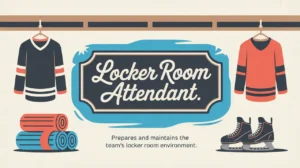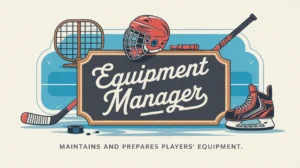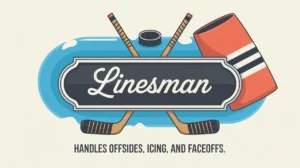Jim’s Intro to the Strength & Conditioning Coach
Hi folks, Jim here, the only commentator who thought “strength and conditioning” was a body wash and shampoo combo product line.
What is a strength and conditioning coach?
A strength and conditioning coach is a specialized performance coach responsible for developing the physical capabilities players need to excel on the ice. Their job is to build strength, power, speed, mobility, and endurance while reducing injury risk through structured training programs tailored to each athlete and the demands of hockey.
Unlike on-ice coaches, their work happens mostly in the gym, weight room, or off-ice training facilities. They’re the architects of the engine under every player’s gear.
How does it work?
The strength and conditioning coach improves performance through program design, monitoring, and periodization:
Assessment and Baseline Testing
- They start by evaluating players’ strength, mobility, balance, and endurance, often using standardized testing.
- These results shape personalized training plans.
Program Design
- They create structured, periodized training programs that balance strength development, speed work, conditioning, and recovery.
- The programs shift through the year. Off-season focuses on building capacity, pre-season on peak power, in-season on maintenance, and post-season on recovery and rebuilding.
Sport-Specific Training
- Training isn’t generic. It reflects hockey’s unique demands, including explosive starts, quick direction changes, sustained shifts, and contact resilience.
- Exercises target lower-body power, core stability, grip strength, and joint integrity.
Injury Prevention
- A huge part of their work is prehab; identifying movement imbalances and weaknesses to reduce injury risk.
- Mobility work, activation drills, and stabilizing exercises are integrated into daily routines.
Monitoring and Adjustment
- Strength coaches track workload, readiness, and fatigue, adjusting programs to avoid overtraining and maximize performance.
Common Situations Involving Strength & Conditioning Coaches
- Off-Season Training Plans: Building strength, speed, and endurance foundations.
- In-Season Maintenance: Adapting workloads around games to keep players fresh.
- Return-to-Play Programs: Rebuilding strength after injuries.
- Development Work for Youth Players: Teaching proper lifting technique and body control.
- Game Readiness Checks: Assessing fatigue levels and adjusting workloads accordingly.
How do you make good decisions with it?
Great strength and conditioning programs rely on planning, individualization, and communication.
- Respect the Training Phases: Each season stage has different goals.
- Listen to the Body: Overtraining leads to burnout or injury.
- Customize for Each Player: Age, position, and physical maturity matter.
- Integrate with On-Ice Work: Training should complement, not compete with, skating and skill development.
- Track and Adapt: Data and observation drive smart adjustments.
How do you master it?
Mastering the strength and conditioning role requires deep knowledge of exercise science, biomechanics, and hockey-specific demands. Great coaches know how to design effective, evidence-based programs while building relationships so players buy in fully. They stay updated on performance research, blending tradition and innovation seamlessly.
What does it look like when done right?
A great strength and conditioning coach produces athletes who explode out of turns, stay strong on the puck, recover fast between shifts, and resist injury throughout the season. The team looks fresh deep into long schedules, and players develop consistently year over year.
Commentator’s Corner
Jim’s Take
The strength coach is like the team’s mechanic. You don’t always see them on game day, but without their work, the wheels fall off fast.
Parent Tip
Proper strength training for young players is about form and progression, not maxing out weights. Trust the coach’s structured approach.
Player Tip
Buy into the plan fully. Showing up and going through the motions won’t cut it. Consistency and effort turn strength programs into real performance gains.
A Final Thought
The strength and conditioning coach is the architect of athletic power, blending science and structure to keep players strong, explosive, and durable. When mastered, the role combines planning, precision, and player trust, laying the physical foundation for everything that happens on the ice.









